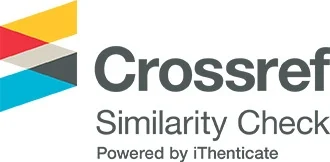Data Sharing Policy
The Journal of Sharia Sciences encourages authors to share the primary data supporting the findings of their published research in order to promote transparency, reproducibility, and scientific progress. We believe that making data available contributes to verifying results, conducting new analyses, expanding research scope, and accelerating scientific discovery.
The journal encourages authors to follow these guidelines regarding data sharing:
Disclosure of Data Availability:
Authors must clearly indicate in the “Data Availability” section of their article whether the underlying data are available. If available, they should specify how the data can be accessed (e.g., by providing a link to a data repository).
Identification of Data Repositories:
Authors are encouraged to deposit their data in recognized public or institutional data repositories that ensure permanent and reliable access. Preference should be given to repositories that provide Digital Object Identifiers (DOIs) to facilitate data citation.
Ethical and Legal Considerations:
Authors must ensure that data sharing complies with ethical (e.g., participant privacy protection) and legal (e.g., data protection laws) requirements. If data are sensitive or subject to restrictions, authors should clearly state these limitations and the reasons for them in the “Data Availability” section.
Providing Sufficient Data:
The shared data should be sufficient to allow other researchers to replicate analyses and verify the results reported in the article.
Data Formatting and Documentation:
Data should be provided in open, machine-readable formats whenever possible, along with clear documentation (such as README files or metadata descriptions) to facilitate understanding and reuse.
Special Considerations:
Certain types of research (e.g., those involving personal or sensitive data) may require prior approval before data can be shared, or may impose restrictions on data accessibility. Authors must comply with such requirements and explain them in their paper.
The journal also encourages authors to cite datasets used in their research to acknowledge the work of data producers, promote a culture of data sharing, and ensure the reusability of research outcomes for the benefit of the scientific community.
While data sharing is not always mandatory, the Journal of Sharia Sciences considers it a best practice that enhances transparency and reliability in scientific research, and strongly encourages authors to share their data responsibly and ethically whenever possible.




